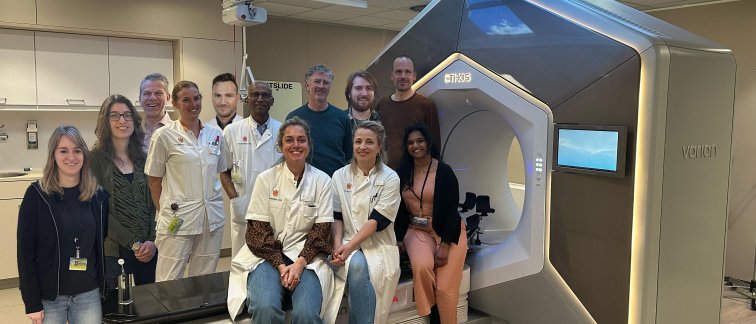Recent advancements in imaging and radiotherapy technology have enabled the development of a CT-free workflow. Using upgraded software and hardware we now perform on-couch target delineation, dose calculation, and plan optimization directly on cone-beam CT (CBCT) images. A phantom CT scan with a standardized planning template is used to support this process, removing the need for a separate diagnostic CT for pre-treatment planning.
Our evaluation of the first treated patients shows that patients can be treated effectively without prior CT-based contouring, and that the overall treatment time remains approximately 30 minutes, comparable to the original FAST-METS workflow. This allows for faster treatment initiation in emergency settings, leading to faster symptom relief. Additionally, our results confirm that online adaptive radiotherapy (oART) can be successfully delivered without pre-existing CT contours, potentially broadening access to urgent care for more patients.
These early findings demonstrate that the CT-Free FAST-METS workflow is feasible, efficient, and maintains treatment quality. Further integration into routine clinical care is ongoing.
People involved
Ashaya T. Jaglal, Koen J. Nelissen, Angelique R.W. van Vlaenderen, Amy L. de la Fuente, Famke L. Schneiders, Peter S. N. van Rossum, Jan Wiersma, Wilko F.A.R. Verbakel, Suresh Senan, Eva Versteijne and Jorrit Visser
Funding
Varian Research Grant

